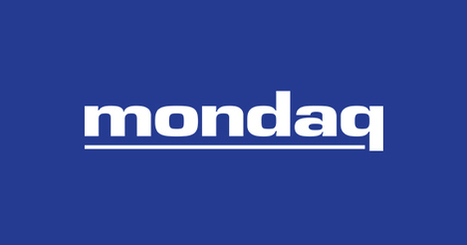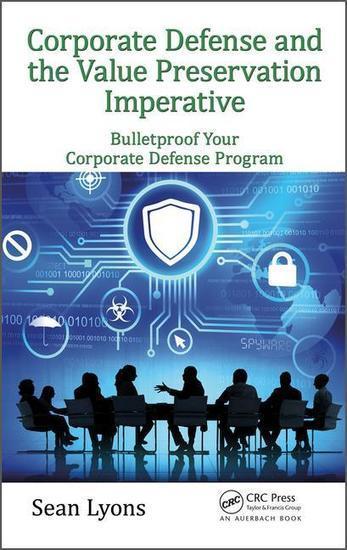 Your new post is loading...
ESG has become a very politicized topic in polarized America. That said, when one goes beneath the level of political theater, I think there is to be found. The first step in doing so is to distinguish between values-based and value-based investing. The foundation of the latter is “materiality,” the basis for determining which ESG issues matter to value creation. One of the topics at the center of the ESG debate is climate change. Here there are number of prominent conservative voices who recognize the urgent need to address this challenge. The Securities and Exchange Commission is feeling pressure across the political spectrum regarding its climate disclosure rule. I argue that it has the authority to require disclosure of Scope 1 and 2 emissions but suggest that it not attempt to include universal disclosure of Scope 3 at this time.
Private equity and venture capital — and the capital flows they represent — are relatively new and increasingly important vehicles for accessing innovation, information, and influence. China may be penetrating this realm in nuanced ways that the U.S. security apparatus has yet to fully understand, let alone address. U.S. policy makers have long recognized the risks of capital flowing into the United States. More recent efforts have also begun to grapple with national security risks related to capital flowing from the United States to China. Regrettably, this recognition and related efforts have had minimal effect. They amount to little more than lip service, particularly when it comes to private market capital flows, which are less regulated than public market capital flows. The strategic role of private market capital flows is a novel and largely overlooked aspect of geopolitical competition. Private equity and venture capital were not institutionalized asset classes during the Cold War. But Chinese political and economic leaders appear to grasp the importance of these fields and how they could have outsized influence in the current U.S.-China competition. Yet this is a field of widespread opacity, and it is difficult to reach definitive conclusions about exposure to foreign capital in these capital flows without first achieving greater transparency and improving frameworks for studying these risks.
Two of the wisest, most experienced, and most influential people in corporate governance, Ira Millstein and former Chief Justice and Chancellor of Delaware, Leo E. Strine, Jr. had a conversation moderated by Columbia professor Eric Talley. Some highlights:
Millstein: Hey, look, shareholder and stakeholder interests are now coming together, and you had better pay attention. The future of your corporation and the future of your relationship with shareholders is on the line.” Too many CEOs may be harking back to the good old days when they ran the show and did not have to worry about anybody else. That is not the case anymore. They have to worry about ev- erybody else—not just shareholders, but stakeholders. Why? Because there is tremendous pressure on them to do so. What I worry about most is that they are not listening. That is why I have turned, and I hope lawyers will turn their attention, to something called moral psychology, because I think somehow we have to get through to CEOs that this is real.
Last month, Cisco Systems, Inc. submitted a no-action letter request to exclude a shareholder proposal submitted by James McRitchie. The fact that Mr. McRitchie has submitted a proposal is by no means newsworthy - he has filed scores this proxy season (see this list). What is unusual is that he is seeking to do away with the protections that California affords to minority shareholders through cumulative voting. He is asking Cisco's Board of Directors "to undertake such steps as may be necessary to permit removal of individual directors by a majority vote of shareholders with or without cause and without suppositions with regard to cumulative voting." [...] While this additional requirement could prevent, or make more difficult, the removal of a director, it is intended to protect minority shareholder rights. Without such a provision, a director elected by cumulative voting could be removed without cause by the majority shareholder(s). This would vitiate the minority's power to elect directors.
GPC will be engaging with members of our GPC COVID-19 ADVISORY PANEL for their insights on how boards will need to shift their conversations, and where organizations have to focus their attention, as the next few months will bring more changes as recovery begins. Join us for this half-day event featuring four panel discussions and leading expert opinions on the following top of mind issues:
(A) Crisis and Risk Management for Boards – What’s Next? [...]
(B) Re-Aligning Your Workforce and Workplace as COVID-19 [...]
(C) Business strategy - How to Set Strategy in Uncertain Times [...]
(D) Virtual Board Meetings, Virtual AGMs and Business ‘Not’ As Usual
Preparing Boards to address trends and systemic risks such as Pandemics, Climate Change, Racism and other ESG topics impacting Boards and their organizations. COVID-19, recognition of institutionalized racism and climate change are rapidly transforming organizations and board room dynamics. Boards and governance professionals need to equip themselves to understand the evolving expectations of boards as society hurtles through the 21st century. Get up to speed in this one-day deep dive with global thought leaders, experts and practitioners representing the full ecosystem around the board and governance professionals, in Canada and internationally. This program features a full day of expert panels and discussion designed for executives and professionals of all levels and organizations, and will address the following:
#1. What is ESG (Environmental, Social, Governance) and Climate Governance and how does this relate to the board’s role?
#2. What lessons can boards learn from COVID-19 and the calls for racial justice and Indigenous reconciliation, to improve their governance of social and environmental trends and risks going forward?
#3. What else is rising to the board agenda? What new issues are boards facing and why? What can we expect in the coming decade?
#4. What are the legal, investor and business cases driving boards to adopt best practices in ESG and climate governance and oversight?
#5. What should sustainability practitioners, governance professionals and corporate directors know about ESG and Climate Governance? [...]
I can think of only one public company that is currently a Delaware Public Benefit Corporation. That's Laureate Education, which initially filed with the SEC in 2015 and went effective in 2017. (See this PubCo post.) Now, finally, we have a second company that has filed for its IPO as a PBC— Lemonade, Inc., which declares on the cover page of its prospectus that it is incorporated in Delaware as a PBC as a demonstration of its "long-term commitment to make insurance a public good." It's been quite a long dry spell since the PBC legislation was signed into law in 2013. In the last few years, however, we have witnessed intensifying investor focus on sustainability as a strategy (see, for example, this PubCo post), as well as swelling numbers of companies declaring their commitments to all stakeholders, as reflected, for example, in the Business Roundtable's adoption of a new Statement on the Purpose of a Corporation (see this PubCo post) and the World Economic Forum's Stakeholder Principles in the COVID Era (see this PubCo post). What's more, new legislation just passed by the House in Delaware will, if ultimately signed into law, make it easier to slip in and out of PBC status. Will these trends toward sustainability and stakeholder capitalism, together with the Delaware legislation, fuel a renewed interest in the PBC for public companies and expecting-to-become public companies? Will Lemonade open the floodgates?
Carl Icahn is not one of those warm and fuzzy billionaires. He’s gruff, iconoclastic, does his own thing, and doesn’t really give a shit what you or anyone else thinks about him. He’s been plying his activist investor shtick around Wall Street for more than 50 years and made himself a fortune. For a while, he ran a hedge fund where he managed his and other people’s money. But he shuttered it and now just invests his own money, his own way. His net worth, according to Bloomberg, is $18 billion. Like Donald Trump, Icahn is from Queens, although he’s from the Jewish side of the tracks. Still, he’s been friends with Trump for decades, ever since he cut a deal—when The Donald’s Atlantic City casinos were going bankrupt in 1990s—that allowed Trump to continue to have a role in their operation and to keep getting paid, when by all rights Trump should have been fired. Icahn bought Trump Entertainment Resorts out of bankruptcy in 2016. When Trump became president, he rewarded Icahn’s loyalty to him by making Icahn an adviser to him on regulatory reform, essentially putting the fox in the henhouse. Icahn quit that role in August 2017 days before a New Yorker article documented his various potential conflicts of interest and how he was allegedly using his assignment with Trump to feather his own nest.
In early March, as it became clear that the coronavirus pandemic really wasn’t a hoax but was about to upend American life, I started texting my friend Paul, an investment adviser, about the stock market. Although I worked briefly on Wall Street before succumbing to the wealth and prestige of a career in journalism, I couldn’t claim any particular financial expertise. But that didn’t stop me from burdening Paul with my predictions. [...] Perhaps one lesson this crisis can reinforce is that we should stop thinking of the stock market as a barometer of national prosperity. Maybe it served that function in the past, but it doesn’t now. Instead, the market has become an emblem and engine of American inequality. In that sense, its performance in recent months reflects our reality all too well.
In the boom years before the pandemic, the Fed encouraged S&P 500 titans to binge on trillions in debt, now the central bank is propping them up to avoid an economic catastrophe. When chief executive Doug Parker took the pilot’s seat at American Airlines in December 2013, it seemed as though clear skies were ahead. His U.S. Airways had finally bagged a major partner by agreeing to combine with bankrupt American. The new company would emerge with modest debt as the nation’s largest airline, with only three domestic carriers left among its global competitors. The financial crisis was well in the past, the economy was humming and travel seemed to be entering a new golden age. Carriers like American had mastered the science of dynamic fare pricing, and now nearly every seat on every flight was full, maximizing revenue and efficiency. Hailing the arrival of a “new American” by early 2014, Parker was eager to please Wall Street. “I assure you that everything we’re doing is focused on maximizing value for our shareholders,” he said on a call with investors.
Harvard academics argue that the only way to make the group’s stated stakeholder commitments enforceable is for the firms to become benefit corporations. Academics have called on member of the Business Roundtable—whose luminaries include Jeff Bezos of Amazon and Larry Fink of BlackRock—adopt the legal status of benefit corporations to ensure their statements on being “purposeful” business are binding. The Roundtable—a club for executives in some of the biggest companies in the US—issued a statement in August last year saying its members would now use a “stakeholder” model of governance rather than a “shareholder” model. However, experts writing for the Harvard Law School Forum on Corporate Governance insist their promises will fall short of being binding unless they change the legal status of their companies. They say Roundtable members should consider becoming benefit corporations, a legal entity that imposes an obligation on corporates to “creating public benefit and sustainable value in addition to generating profit”.
The Covid-19 global pandemic is already having profound ramifications upon companies, the economy and society at large. Shareholders, stakeholders (employees, customers, NGOs and others) as well as ultimate beneficiaries are becoming increasingly interested in how institutional investors (asset managers and asset owners) engage with companies during these times, especially on ESG issues. Rendering institutional investors and asset managers good monitors of their investee companies and improving their accountability to both companies and their own beneficiaries and clients is today among the key challenges around the world.
Value creation is hard to come by, especially during ‘The Great Pause of 2020’ thanks to Covid-19. But what if your average investor knew how to tap into the brains of the most prolific and successful financial geniuses alive today? Now you can as The Edge (the leading source in under-performing companies for activist involvement, Special Situations and Spinoffs) have crafted the perfect solution: revealing a bespoke study which unmasks the King of the Activists, available on request. The Edge’s research into the ten major US activist players was designed to give insights into each of their annual campaigns, as far back as 15 years ago, to ascertain if their actions resulted in value creation for shareholders. The research firm probed each activist’s overall performance in terms of market caps and sectors against the relevant comparable indices over time.
|
The man who inspired the character of Gordon Gekko in Oliver Stone's 1987 film Wall Street is Wall Street legend Carl Icahn. Icahn is known as a corporate raider and as a shareholder activist. A corporate raider identifies companies whose shares he or she thinks are undervalued, a strategy known as value investing. They then buy a large number of shares, which gives them voting rights, and they use those rights to push for changes in the company's management and operations.Those changes can lead to increased share value, which can net the corporate raider enormous returns or even the company itself. Control of a company means the corporate raider can sell it or combine it with another company in a merger. Companies that have recently rejected acquisition offers that corporate raiders think were fair often become targets of those raiders.
Outperformance increased during pandemic, CECP and Fortuna Advisors note
Investors voted for changes to supermajority voting rule for the fifth time since 2013 at annual meeting, and followed ISS call to vote against board nominees to show displeasure with continuing inaction from the company
Has all of the current political unrest and social upheaval had any impact on the drive for political spending disclosure? Apparently so, according to the nonpartisan Center for Political Accountability, which reports in its June newsletter that support for shareholder proposals in favor of political spending disclosure hit record highs this past proxy season. But one risk potentially arising out of political spending is reputational, which could fracture a company’s relationship with its employees, customers and shareholders. As companies and CEOs increasingly offer welcome statements on important social issues such as climate change, healthcare crises and racial injustice, the current heated political climate has heightened sensitivity to any dissonance or conflict between those public statements and the company’s political contributions. When a conflict between action in the form of political spending and publicly announced core values is brought to light, will companies be perceived to be merely virtue-signaling or even hypocritical? To borrow a phrase from asset manager BlackRock, if the public perceives that these companies are not actually doing “the right thing”—even as they may be saying the right thing—will they lose their “social license” to operate? (See this PubCo post.) CPA’s brand new report on Conflicted Consequences explores just such risks.
The year of the coronavirus may turn out to be the best one yet for hedge fund mogul Bill Ackman, who spoke with Institutional Investor after he scored another coup Wednesday when his Pershing Square hedge funds sponsored an initial public offering of a $4 billion special purpose acquisition company. Pershing Square Tontine Holdings, as it is called, is the largest-ever SPAC — also known as a blank check company because it’s simply a publicly traded receptable for the cash that eventually will be used to buy a private company, allowing it go public without all the trouble and risk associated with such efforts. “We designed Tontine to be the most efficient way for a large, high-quality growth company to go public, and our shareholders have bought into that plan,” Ackman said in an interview after the IPO launched Wednesday. While SPACs have become the rage among hedge funds, Tontine’s huge popularity is also a reflection on Ackman’s rising stature this year, which added to investors’ willingness to give him so much money to play with. “He’s a courageous investor, is willing to be bold, and he finds a way to win,” says Chamath Palihapitiya, whose Social Capital has also launched three SPACs, including one that bought Richard Branson’s Virgin Galactica and is now up about 150 percent since its launch in March of 2019.
[...] The greatest compliance challenges faced by boards were balancing budgets and increasing compliance costs, respondents said. This suggests boards acknowledge the importance of providing compliance teams with the necessary resources but want to ensure they get the level of resource correct. Boards will be loath to overpay for compliance, especially if costs increase year on year, but equally will want to manage the firm’s the regulatory risk. The “champion vs challenger” conflict — whereby the head of compliance asks for more budget to deal with new regulation or specific projects, e.g., data protection, and boards question the value of increased spending — is a frustrating but healthy position. Boards need to get this balance right because it may affect a director’s personal liability. New accountability regimes have further convinced respondents of the increased personal liability of board members. This places an extra burden on board members to comply with the rules and to demonstrate compliance. At a time when good corporate governance suggests boards should be more diverse, serving on the board of a financial services firm may hold little appeal given these extra responsibilities and regulatory scrutiny, making it harder to recruit directors. Boards also anticipate challenges in terms of regulatory and cultural change. Boards should set the appropriate culture and management should put in place procedures to support that culture; failure to do so could lead to fines or censure of the firm, and of senior managers. Board members are expected to have reporting structures in place to keep them informed of the risks run by all parts of the firm. This is difficult for large firms, and boards will be nervous that they are not receiving the information they need to be assured of regulatory change and cultural compliance.
In the wake of the first contested virtual annual meeting, Igor Kirman and Sabastian Niles explain the additional steps governance teams should take. The 2020 proxy season has been anything but routine, with the Covid-19 pandemic and the resulting state shelter-in-place orders requiring many companies to make the shift from physical to virtual AGMs, as well as state corporate laws being amended to allow these virtual meetings to occur. But we had not seen a virtual annual meeting used in a proxy contest until April 30, 2020, when shareholders of TEGNA participated in the first election contest conducted at a virtual, rather than physical, annual meeting. (All 12 of the company’s nominees were re-elected.) Although the concept and technology have existed for several years, virtual annual meetings were slow to become widespread. The trickle that began after Delaware amended its business corporation laws to permit such meetings in 2000 gained steam after 2009 when Intel Corporation hosted the first virtual annual meeting using technology pioneered by Broadridge Financial Solutions. Some key considerations to take into account when navigating a contested virtual meeting are set forth below.
Years before it was forced into bankruptcy, Hertz Global Holdings Inc. HTZ 119.82% decided to replace a fleet that was becoming a turnoff to customers. Because Hertz was strapped, it bought what was cheap and available, doubling down on sedans instead of the SUVs customers wanted. “The fleet had aged to the point that we had customer mutiny,” said former Hertz Chief Executive John Tague. “We were solving the biggest problem, but not solving all the problems.” That decision was emblematic of a series of strategic missteps and other blunders that kept Hertz behind competitors and buried under debt. The downturn caused by the coronavirus was just the icing on the cake. Hertz on Friday filed for bankruptcy protection. The pandemic’s economic fallout has triggered a wave of bankruptcies, including chapter 11 filings in recent weeks by energy companies and retailers such as J.C. Penney Co. and Neiman Marcus Group Inc. It has pushed more-stable companies to preserve cash and go deeper into debt to shore up liquidity. In many cases, the companies in the most trouble today are those who were also in the most trouble yesterday. The pandemic means muddling through is no longer an option.
This is the first book to finally address the umbrella term corporate defense, and to explain how an integrated corporate defense program can help an organization address both value creation and preservation. The book explores the value preservation imperative, which represents an organization’s obligation to implement a comprehensive corporate defense program in order to deliver long-term sustainable value to its stakeholders. For the first time the reader is provided with a complete picture of how corporate defense operates all the way from the boardroom to the front-lines, and vice versa. It provides comprehensive guidance on how to implement a robust corporate defense program by addressing this challenge from strategic, tactical, and operational perspectives. This arrangement provides readers with a holistic view of corporate defense and incorporates the management of the eight critical corporate defense components. It includes how an organization needs to integrate its governance, risk, compliance, intelligence, security, resilience, controls and assurance activities within its corporate defense program.
(Bloomberg) -- Luckin Coffee Inc.’s battered stock faces a renewed wave of selling on Wednesday, after Nasdaq Inc. said it planned to delist the onetime market darling that shocked investors with revelations of accounting fraud last month. The Chinese coffee chain’s shares, which have been suspended since tumbling more than 80% in early April, will resume trading at 7 a.m. in New York. Luckin announced Nasdaq’s intention to delist the company in a statement on Tuesday, saying shares will remain on the exchange pending the outcome of an appeal hearing. [...] Luckin’s dramatic fall from grace has made the company a poster child for concerns about Chinese corporate governance, fueling a debate in Washington over the extent to which American money and capital markets should be intertwined with a growing geopolitical rival.
Three months ago, Brian Chesky, chief executive of Airbnb, made a bold pledge: if he conducted an IPO, he would turn his business into a “stakeholder” company, serving employees and society as much as future shareholders. It initially seemed just a trendy promise. After all, many US companies have made similar pledges since the Business Roundtable, the US corporate lobbying group, embraced stakeholder interests last August. But now Airbnb is being tested, along with many other businesses. As Covid-19 has decimated its revenues, Mr Chesky has been forced to cut staff. But it was initially unclear how to do this in a “responsible” way.
A study by Professor Lucian Bebchuk LL.M. ’80 S.J.D. ’84 and Boston University Professor Scott Hirst LL.M. ’01 S.J.D. ’16, “Index Funds and the Future of Corporate Governance: Theory, Evidence, and Policy,” was selected in an annual poll of corporate and securities law professors as one of the ten best corporate and securities articles of 2019. The top ten articles were selected from a field of nearly 400 articles published in legal journals during 2019, according to an announcement by Georgetown Professor Robert Thompson, published on the Corporate Practice Commentator blog.
|

 Your new post is loading...
Your new post is loading...






























